Manual release
The parking brake can be released manually in the event of a power failure or electrical fault.
![]() Before releasing, secure the vehicle
against rolling
Before releasing, secure the vehicle
against rolling
Before releasing the parking brake manually, and whenever you park the vehicle with the parking brake released, ensure that position P of the automatic transmission is engaged.
Secure the vehicle in a manner appropriate to the inclination of the road, e.g., with a wheel chock; otherwise, there is the danger of the vehicle rolling.
Unlocking
1. Remove the release tool from the tool kit.
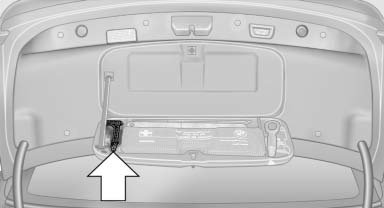
2. Raise the floor panel in the cargo area.
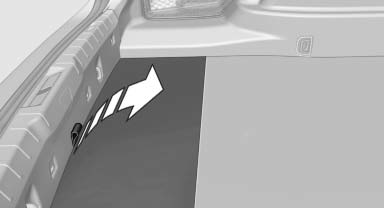
3. Take out the floor trim in the cargo area, removing the screws with the release tool, arrows.
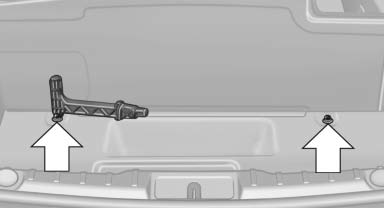
4. Place the release tool on the release point, arrow.
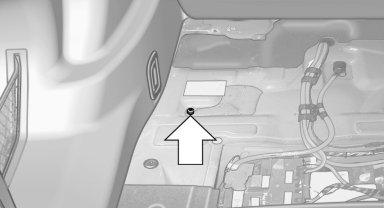
5. Forcefully pull the release tool up against the resistance until you notice a marked increase in the resistance and the parking brake releases audibly.
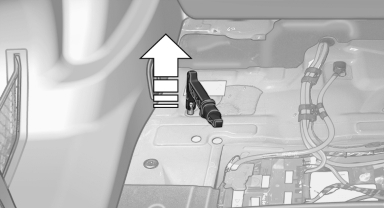
![]() Have the malfunction corrected
Have the malfunction corrected
If the parking brake has been released manually in response to a malfunction, only technicians can return it to operation.
Have the malfunction corrected by your service center.
See also:
Wheels and tyres
The new BMW 3-Series Sedans are factory-fitted with attractively styled,
high-quality alloy wheels. The BMW 335i and BMW 328i run on 17-inch Star-spoke
wheels carrying 225/50 R17 tyres. The BMW 32 ...
Status display
The current status of the Flat Tire Monitor can
be displayed on the Control Display, e.g.,
whether or not the FTM is active.
1. "Vehicle Info"
2. "Vehicle status"
3. " ...
Rear
Opening
Press on the cover.
Emptying
Take out the insert.
Lighter
Push in the lighter.
Danger of burns
Only hold the hot lighter by its knob; otherwise,
there is the danger of getting bu ...
